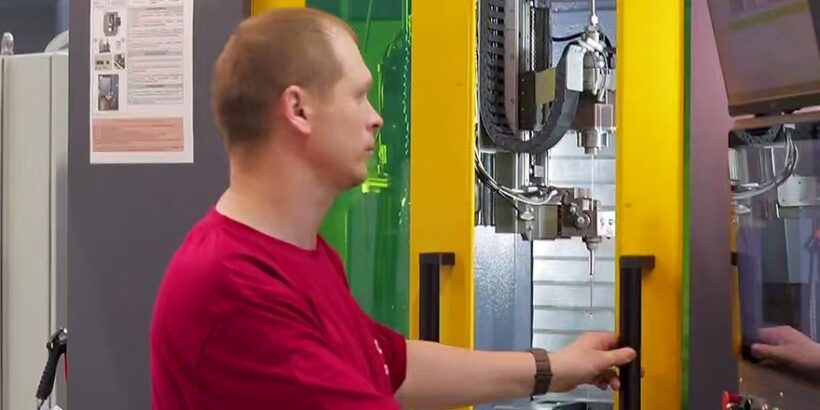ODK-Saturn, an aerospace manufacturer based in Rybinsk, has begun producing turbine blades for the PD-8 engine using domestically developed hybrid machining centers. These machines, designed by engineers from Zelenograd according to ODK-Saturn’s specifications, integrate laser and electrical discharge machining (EDM) processes to perform two operations simultaneously within a single production cycle, according to the United Engine Corporation (ODK) press office.
The manufacturing process focuses on creating perforated holes in the high-pressure turbine’s nozzle guide vanes and rotor blades. These micro-perforations form a film cooling system that is essential for protecting the components from extreme operating temperatures, ODK explained.
Modern gas turbine engines operate with turbine inlet temperatures exceeding 3600°F (around 2000 K), which is significantly higher than the melting point of the base structural materials used for turbine blades. To withstand these conditions, blades rely primarily on convective-film cooling, achieved through a complex network of internal cooling channels within the blades and the turbine rotor assembly. The cooling air is drawn from the engine’s compressor section.
Before entering the blades, this air is pre-cooled by mixing with water or fuel and then routed through internal passages via the engine shaft and centrifugal compressor channels integrated into the turbine rotor. The internal convective heat transfer effectively cools the blades from within, while air exiting through the perforations forms a thin protective film on the blade surfaces, reducing thermal stress from the hot combustion gases.
This combination of convective and film cooling keeps blade temperatures within safe operating limits, ensuring reliable performance under extreme thermal loads. The hybrid laser-EDM machining process delivers the high precision required for the cooling hole geometry while preserving the mechanical properties of the nickel-based superalloys used in the blades.
Currently, four of these hybrid machines operate around the clock, with plans to expand the fleet to eight units. Igor Ilyin, Chief Engineer at ODK-Saturn, noted that the existing setup already supports stable production for both prototype and serial PD-8 engines. The automated process shortens manufacturing times compared to traditional methods and improves the consistency of cooling channel geometries.
The adoption of hybrid machining centers is a key step toward achieving technological independence in aerospace propulsion manufacturing. By relying on domestically developed equipment, ODK-Saturn can complete the full production cycle of critical components without dependence on foreign technologies. The system was developed with the specific requirements of the advanced PD-family engines in mind.


